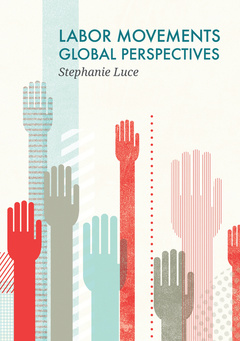Description
Labor Movements
Global Perspectives
Social Movements Series
Author: Luce Stephanie
Language: English
Subject for Labor Movements:
Keywords
work, unions, sociology of work, protest, labor organization, unionization, trades unions
Publication date: 04-2014
200 p. · 15.8x21.8 cm · Hardback
Publication date: 04-2014
200 p. · 14.2x21.1 cm · Paperback
Description
/li>Contents
/li>Readership
/li>Biography
/li>
This book provides a critical evaluation of labor unions both in the U.S. and globally, examining the factors that have led to the decline of union power and arguing that, despite their challenges, unions still have a vital part to play in the global economy. Stephanie Luce explores the potential sources of power that unions might have, and emerging new strategies and directions for the growth of global labor movements, such as unions, worker centers, informal sector organizations, and worker co-operatives, helping workers resist the impacts of neoliberalism. She shows that unions may in fact be more relevant now than ever.
This important assessment of labor movements in the global economy will be required reading for advanced undergraduates and graduate students of labor studies, political and economic sociology, the sociology of work, and social movements.
Acknowledgments
1. Introduction
Part I: Background
2. A Role for Unions?
3. Why Unions Decline: External Challenges on the Macro Level
4. Adding to Further Decline: Labor Market Changes
Part II: Union Response
5. Changing from Within
6. Union Power
7. Rebuilding the Movements
8. New Directions – Going Global
Notes
References
Index




